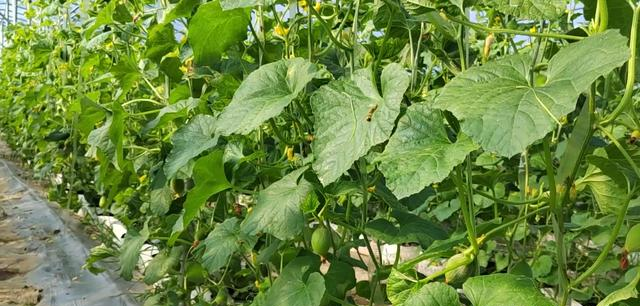Don't use the wrong method! There are three reasons for melon cracking, and farmers should prevent it in gardening
When planting melons and fruits, the occurrence of cracking always leaves farmers helpless and has no remedy. We can only find out the reasons for cracking melons and fruits, and wait until the next crop is planted to prevent and reduce cracking melons. Some farmers say that the melon planted has also been prevented during the fruit expansion period, but there are still many melons cracking. These may be misunderstandings in the field prevention.

- Melon will crack due to calcium deficiency, which is familiar to many farmers. In order to prevent melon cracking and alcoholism, farmers began to pay attention to the use of calcium fertilizer. If the amount of calcium fertilizer is sufficient and the absorption rate is high, it is conducive to fruit expansion. However, some farmers think that calcium fertilizer is a medium element, and only spray it on the leaves during the fruit expansion period, which is far from meeting the calcium demand of melon.
If melons want to grow well and have high quality, the use of calcium fertilizer is very critical, and farmers' fertilization methods should also be changed. The absorption and utilization rate of calcium in muskmelon is the highest in the middle and early stage from slow seedling to fruit bearing, but it decreases in the fruit expansion stage. Therefore, when supplying calcium to melon, fertilizer should be applied in the early and middle stages of growth, mainly at the root, supplemented by spraying calcium fertilizer on the leaves, so as to ensure sufficient calcium and reduce melon cracking.
- Calcium deficiency is one of the reasons for cracking melons. In addition, we should also pay attention to field management. For example, when melons are planted in early spring, the temperature is unstable at the expansion stage. The temperature outside the shed is high, and some farmers open the tuyere at one time to quickly reduce the temperature. However, the leaves and fruits show that the temperature decreases rapidly, and the leaves will appear the symptoms of burning, while the fruit surface hardens, it is easy to crack the melon. When the air humidity in the greenhouse is too low during soilless cultivation, the peel will harden and crack the melon. In addition, if the fruit surface is exposed to too much light, it is also easy to crack the melon.
Therefore, during melon field management, it is necessary to regulate the temperature and humidity in the shed. When the temperature rises, the air outlet will slowly open, and sunny days will appear after continuous cloudy days. It is necessary to leave some leaves to block the light, so as to prevent the fruit surface temperature from changing greatly, resulting in melon cracking.
- Melon dipping method is not correct, it is also easy to crack melon. Some farmers use chemicals to dip flowers, but the concentration is not well controlled, and it is also easy to crack melons in the later stage. We often use clopidourea to dip flowers, and the dosage must be used according to the temperature. Generally speaking, when the temperature is high, the concentration should be low. After dipping, the excess liquid should be flicked away to prevent more cracking melons when the concentration is high.
There are many reasons for melon cracking, which has a great impact on the yield. Farmers should comprehensively prevent it. If only calcium is supplemented and field management is not done well, melon cracking will also occur. On the other hand, the prevention method should be correct, and it is best to apply calcium fertilizer in the middle and early stage. During field management, control the humidity and temperature in the greenhouse. When dipping flowers, the concentration should be appropriate.


